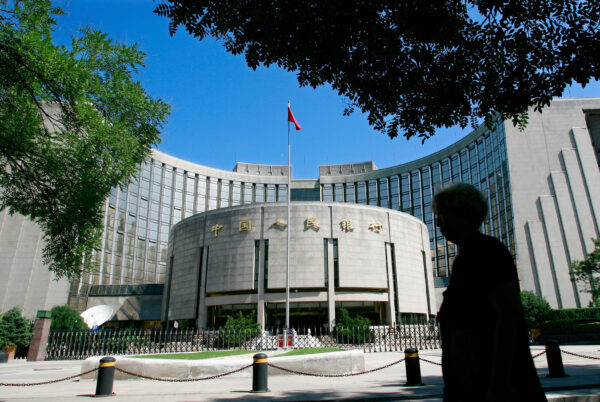China’s US Debt Holdings Drop to 12-Year-Low, Further Reductions May Follow
Distressed Patriotic Flag Unisex T-Shirt - Celebrate Comfort and Country $11.29 USD Get it here>>

China’s holdings of U.S. debt dropped to the lowest since 2010 after falling below the $1 trillion mark in May, according to data released by the U.S. Treasury on Aug. 15.
After seven months of continuous decreases, China’s U.S. Treasury holdings dropped to $967.8 billion in June, $113 billion less than last November, according to international capital flows.
China decreased its debt holdings while the U.S. Federal Reserve has been raising rates aggressively to bring down high inflation, which means the sale of bonds ahead of maturity will lead to a capital loss.
Bond prices have an inverse relationship with the prevailing interest rates. Driven by the market forces to pursue higher interest payments, older bonds become less valuable when interest rates rise as interest payments are now lower than new bonds available in the market.
However, according to Chinese state-owned business media Yicai, China’s holdings of U.S. Treasuries declined as “China stabilized its foreign currency reserves [as it seeks to] diversify overseas investment risks.”
In addition, Chinese state-owned media Shanghai Observer said on Aug. 16 that the risk of holding U.S. debt has increased due to the Fed’s interest rate hikes.
In response to the comments made by the Chinese state-owned media, Li Songyun, a doctorate in economics and expert on the Chinese economy, told The Epoch Times that the claim of increased risk of holding U.S. debt is “nonsense.”
Foreign holdings of U.S. Treasuries had a net increase of $5.1 billion in June, meaning that while China reduced its holdings by $13 billion, other countries increased their holdings by a total of $18.1 billion, including Japan, which added $12.6 billion.
“The latest data show that both the Consumer Price Index and the Producer Price Index fell in July, meaning that U.S. inflation is likely to have peaked or to be peaking,” Li said.
“Furthermore, U.S. GDP grew 2.3 percent year-over-year (y-o-y) in the second quarter, while China’s GDP only grew 0.4 percent y-o-y. How can holding U.S. bonds be riskier than holding bonds in yuan?”
Li added that China’s central bank is stabilizing the yuan exchange rate by selling U.S. bonds and buying yuan—its own currency—because “capital outflows are putting pressure on the yuan exchange rate to depreciate.”
Net Outflows of Foreign Capital
From February to July, China’s bond market saw net outflows of foreign capital for six consecutive months, with foreign investors reducing their holdings of Chinese bonds by $82 billion, according to a Wall Street Journal report on Aug. 16.
Li said many factors contribute to the yuan’s depreciation. Factors such as raised interest rates by the Fed, reduced interest rates in China due to its economic slump, and concerns of sanctions against the Chinese Communist Party (CCP) for its ostensibly neutral position on the Russia-Ukraine war.
“These factors of capital outflows will not disappear soon. China’s central bank tried to stabilize the yuan’s exchange rate by restricting the exchange of foreign currency required by businesses and individuals as well as selling U.S. debt to buy Chinese Yuan,” Li said.
“Although a certain degree of exchange rate devaluation can stimulate exports, it puts more pressure on import businesses and negatively affects its people’s lives.”

In response to the claim that China had stabilized its foreign currency reserves, Li pointed out that China’s foreign exchange reserves are “not abundant.” Although its figure remained above $3 trillion in July, “China’s foreign debt balance also stayed above $2.7 trillion at the end of March.”
China’s foreign currency reserves (pdf) were $3.1041 trillion at the end of July, which has fallen by $117.561 billion since January.
“Stabilizing the exchange rate by consuming foreign currency reserves is not sustainable,” Li said. “Buying yuan would mean tightening liquidity, which offset the effects of interest rate cuts and other monetary easing policies. And that would further impact the Chinese economy.”
“Therefore, from now on, the Chinese government may allow the yuan’s exchange rate to depreciate further. There are already analyses predicting that one U.S. dollar will equate to seven yuan by the end of this year, as reported by Bloomberg,” Li added.
To further ease monetary conditions, the Chinese central bank lowered the interest rate on the medium-term lending facility by ten basis points on Aug. 15, exceeding market expectations.
According to state-owned media China Finance, the rate cut was triggered by China’s economic data in July was “lower across the board [than in June], indicating that the economy has been under increased downward pressure recently.”





